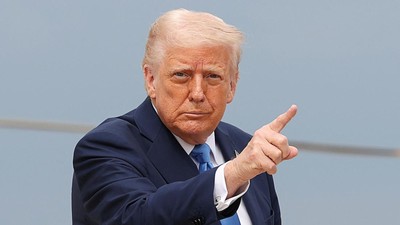In a move that has sparked immediate concern from the scientific community, former President Donald Trump’s proposed federal budget includes deep cuts to U.S. scientific research funding. If implemented, the budget would significantly reduce investments in key areas such as climate science, medical research, and renewable energy development.
According to the proposal, agencies like the National Institutes of Health (NIH), the National Science Foundation (NSF), and the Department of Energy’s Office of Science would face double-digit percentage reductions in their funding levels.
Impact on Scientific Innovation and Progress
The proposed cuts would have sweeping consequences. For instance, the NIH could lose over $7 billion, a reduction that could severely limit grants for medical breakthroughs and disease research. Similarly, funding for climate change studies at NASA and the National Oceanic and Atmospheric Administration (NOAA) would be slashed, halting several long-term research initiatives.
Meanwhile, renewable energy programs under the Department of Energy would be among the hardest hit. These cuts come at a time when global competition in clean energy technology is intensifying, raising concerns that the U.S. could fall behind countries like China and Germany in innovation.
Reactions from the Scientific Community
Unsurprisingly, researchers, educators, and public health officials have voiced strong opposition. Leading science organizations argue that such budget decisions undermine decades of scientific progress and put future advancements at risk.
Dr. Lisa Matthews, a biomedical researcher at a major U.S. university, stated, “This budget is not just a setback—it’s a direct threat to the health, safety, and innovation capacity of the nation. Scientific research saves lives, creates jobs, and drives economic growth.”
Moreover, several universities and laboratories warned that reduced federal funding could lead to lab closures, loss of research talent, and decreased opportunities for young scientists.
The Broader Political Context
This is not the first time Trump’s administration has proposed budget reductions for science. Similar attempts were made during his previous term, although Congress ultimately restored much of the threatened funding. The latest proposal may face a similar fate, especially in a politically divided legislature.
However, the budget still reflects broader ideological priorities. By shifting funding away from research and into defense and infrastructure, the Trump campaign is signaling a return to its “America First” platform, prioritizing short-term economic goals over long-term scientific investment.
Conclusion: A Critical Juncture for U.S. Science
In conclusion, Trump’s proposed budget represents a pivotal moment for the future of American scientific leadership. While the cuts are not yet finalized, they send a strong message about the direction of national priorities.
If Congress does not intervene, the long-term consequences could be profound—from stalled medical discoveries to weakened climate data collection. As the global race for innovation accelerates, many believe now is the time to increase, not decrease, support for science.








